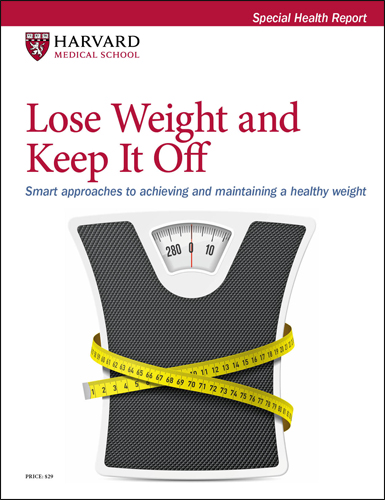Is BMI the best predictor of future health?
Ask the doctor

Q. My doctor says that measurements like body mass index or other measurements are better predictors of my future health than my weight. What are these other measurements?
A. Why does a doctor measure your weight? To find out how much fat you have — particularly unhealthy types of fat. There are several fancy and expensive ways of measuring the amount of body fat, but they are useful primarily in research studies.
Your total body weight reflects not only the amount of fat in your body, of course, but also the amount of many other tissues — muscle, liver, heart, brain, and so on. And the total weight of all of your body tissues is likely to be greater if you are taller.
So, scientists developed the body mass index, or BMI, a measurement determined by a combination of your weight and height. Many studies have shown that a BMI of 18.5 to 24.9 indicates a healthy weight, 25 to 29.9 is overweight, and 30 or greater is obese. Being overweight or obese is associated with worse health and an earlier death.
The BMI combines your weight and height because whether you are overweight depends on your height. For example, if you weigh 200 pounds and stand 6 feet 4 inches, you're not overweight; however, if you weigh 200 pounds and stand only 5 feet tall, you are very overweight — in fact, you're obese.
While BMI is a lot better measure of your health than just weight, it still has its flaws. It doesn't assess body fat as well in older folks as it does in younger adults. And it doesn't distinguish between fat that's in your belly from fat that's in other places, like in your hips. Excess abdominal fat is worse for your health than fat elsewhere.
For this reason, measurement of waist circumference has been studied as a marker for health. It's measured at your natural waist: in between the lowest rib and the top of the hip bone, or at the belly button. It's a very accurate way of estimating the amount of abdominal fat. Increased waist circumference strongly predicts worse health and earlier death. But it's hard to standardize just exactly where to measure the waist: two different health professionals might get different measurements of your waist circumference.
The relationship between waist and hip measurements also is used. With a higher waist-to-hip ratio, there's a greater risk of adverse health outcomes and earlier death. Unfortunately, the hip measurement, like the waist measurement, is also hard to standardize.
Because weight and height are simple to measure, most doctors still estimate the amount of your body fat by measuring those and hence, your BMI, rather than using one of the other measurements. It's really important to maintain a healthy BMI.
Image: © uliia_n/Getty Images
About the Author

Anthony L. Komaroff, MD, Editor in Chief, Harvard Health Letter; Editorial Advisory Board Member, Harvard Health Publishing
Disclaimer:
As a service to our readers, Harvard Health Publishing provides access to our library of archived content. Please note the date of last review or update on all articles.
No content on this site, regardless of date, should ever be used as a substitute for direct medical advice from your doctor or other qualified clinician.













